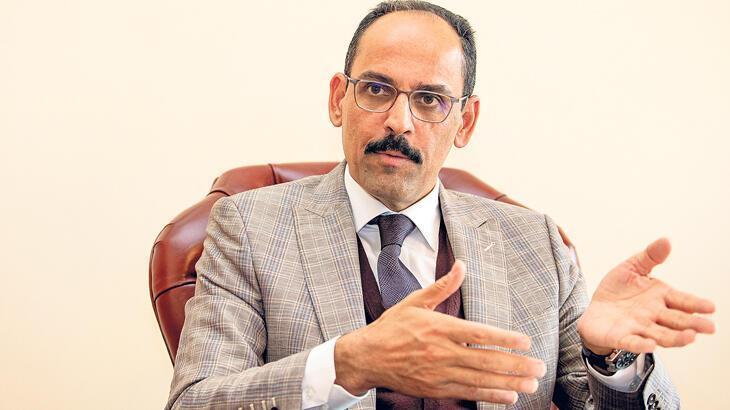
A scheduled meeting between President Recep Tayyip Erdoğan and U.S. President Joe Biden in Rome in late October is offering an opportunity for resolving the differences between the two countries, including its exclusion from the F-35 joint fighter program as a result of its procurement of Russia’s S-400 air defense system, a senior Turkish official has said.
“We are going to resolve [our disagreements] through dialogue and negotiations. Thus, the meeting to be held in Rome is an important opportunity. Our president will attend the meeting in a well-prepared manner. And after the meeting, we will continue our works to put this relationship on better ground and advance it with a positive agenda,” İbrahim Kalın, the chief foreign policy adviser and spokesman of Erdoğan, told daily Milliyet in an interview published on Oct. 12.
“Of course, our interlocutors should rightly read the good-intention of our president and Turkey,” he added.
Erdoğan and Biden are planned to hold a face-to-face meeting on the sidelines of the G20 Summit to be held on Oct. 30 and 31 in Rome before attending the COP26 global climate change summit in Glasgow. They had their latest meeting in mid-June in Brussels during a NATO Summit.
Three main problems are troubling the Turkish-American relationship, Kalın stated, citing the U.S. inaction against the presence of the FETÖ leadership on their soils, the continued support of the U.S. to the YPG in northern Syria and Turkey’s exclusion from the F-35 fighter program that also accompanied with sanctions under the Countering America’s Adversaries through Sanctions Act (CAATSA) over Turkey’s procurement of Russia’s S-400 air defense system.
“The steps the U.S. should take are well known in case if strategic priorities are well defined: Ending their support to the YPG and taking decisive measures against the FETÖ to stop their anti-Turkey campaign there,” he said.
Leaders to discuss regional issues, too
The chief foreign policy adviser underlined that the two presidents will address a wide range of issues in their meeting, including bilateral political and economic ties as well as regional developments in Afghanistan, Syria, Iraq, Caucasus, Libya and the eastern Mediterranean.
“What we wish for the two strategic partners and allies is to discuss all these issues on their agenda, advance on the issues we agree and try to resolve the issues we disagree on through dialogue,” Kalın said, adding that increasing the trade volume would continue to be an important target for Turkey.
Turkey may purchase new F-16s
One of the important matters to be raised during the Rome meeting will be Turkey’s new request from the U.S. for the purchase of 40 new F-16 and modernization kits for the existing F-16s in the Turkish fleet.
“The ‘F-16 is old technology’ criticism is not true. Currently, F-16s make up a significant part of Turkey’s and NATO air power. It will continue to function for a while,” Kalın said, informing that Turkey is continuing efforts to strengthen its air forces by developing new technologies as one of the strongest NATO allies.
Recalling that Turkey’s exclusion from the F-35 joint fighter program was unfair and illegal, Kalın said that he hopes that Washington will correct this mistake soon. “But in the case that does not happen, there is a $1.4 billion money we have paid for [five fighter jets that were not delivered],” Kalın recalled.
Turkey looking for other alternatives
“One of the optional solutions may be the expansion of our current F-16 fleet and the modernization of our existing F-16s in return for the money we have paid for,” he stated. This request has recently been made, and the final decision will be given after seeing the conditions, Kalın said, reiterating that “F-35s is, of course, important technology and it is our first choice. It’s our right to receive the F-35s. But we are not going to give up on strengthening our air force fleet because of the sanctions. If the crisis with the U.S. is over, we’ll get our F-35s. But if not, we will continue to look for alternatives.”
Turkey is not without alternatives in the defense industry and can supply the desired military material from the world market, including Russia or Europe, should its needs are met by the allies, Kalın stated, recalling Turkey’s demand of supplying U.S.-made Patriots under suitable conditions while drawing attention to the fact that some Congress members are in efforts to disrupt the Turkish-American ties.
On a question, Kalın said the talks for buying the second batch of S-400s from Russia is continuing in its merit, saying, “But we continue to look closely at all other alternatives.”